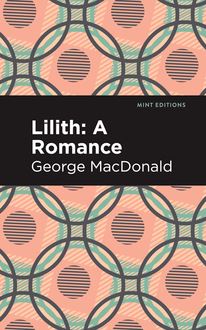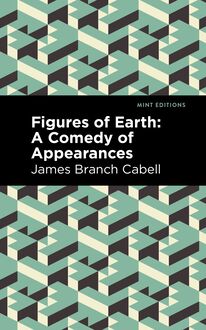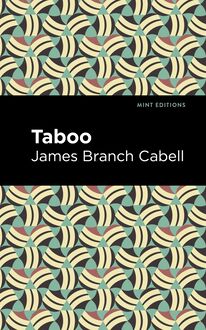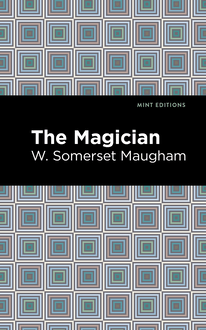-
 Univers
Univers
-
 Ebooks
Ebooks
-
 Livres audio
Livres audio
-
 Presse
Presse
-
 Podcasts
Podcasts
-
 BD
BD
-
 Documents
Documents
-
- Cours
- Révisions
- Ressources pédagogiques
- Sciences de l’éducation
- Manuels scolaires
- Langues
- Travaux de classe
- Annales de BEP
- Etudes supérieures
- Maternelle et primaire
- Fiches de lecture
- Orientation scolaire
- Méthodologie
- Corrigés de devoir
- Annales d’examens et concours
- Annales du bac
- Annales du brevet
- Rapports de stage
La lecture à portée de main
Vous pourrez modifier la taille du texte de cet ouvrage
Découvre YouScribe en t'inscrivant gratuitement
Je m'inscrisDécouvre YouScribe en t'inscrivant gratuitement
Je m'inscrisEn savoir plus
Vous pourrez modifier la taille du texte de cet ouvrage
En savoir plus

Description
Jurgen, A Comedy of Justice (1919) is a comic fantasy novel by James Branch Cabell. Set in a world where history and fantasy collide, where a lowly pawnbroker can encounter monsters, gods, and devils, Jurgen, A Comedy of Justice is one of Cabell’s best-known works of fiction. For several years after its initial publication, the novel was the subject of an obscenity trial pursued by the New York Society for the Suppression of Vice. In 1923, after winning his case, Cabell made sure to immortalize the event with a revised edition featuring a “lost” chapter where Jurgen is persecuted for his writing by grotesque Philistines. Jurgen, A Comedy of Justice is one work in a series of novels, essays, and poems known as the Biography of the Life of Manuel. “For now had come to Jurgen and the Centaur a gold-haired woman, clothed all in white, and walking alone. She was tall, and lovely and tender to regard: and hers was not the red and white comeliness of many ladies that were famed for beauty, but rather it had the even glow of ivory […] to Jurgen this woman's countenance was in all things perfect. Perhaps this was because he never saw her as she was.” Unsatisfied with life as a lowly pawnbroker, Jurgen follows his heart in pursuit of ideal love. A proponent of medieval chivalry, he encounters gods, goddesses, kings, and queens as he passes from one otherworldly realm to the next. On his wondrous journey, he meets some of the most celebrated women in history and literature, including Guinevere, Anaitis, and Helen of Troy. Jurgen, a wily poet and legendary lover with a head full of dreams and desires, is an allegorical figure for modern humanity, a flawed hero whose kaleidoscopic world is not entirely different from our own. Cabell’s work has long been described as escapist, his novels and stories derided as fantastic and obsessive recreations of a world lost long ago. To read Jurgen, A Comedy of Justice, however, is to understand that the issues therein—the struggle for power, the unspoken distance between men and women—were vastly important not only at the time of its publication, but in our own, divisive world. With a beautifully designed cover and professionally typeset manuscript, this edition of James Branch Cabell’s Jurgen, A Comedy of Justice is a classic of fantasy and romance reimagined for modern readers.
Sujets
Informations
| Publié par | Mint Editions |
| Date de parution | 03 août 2021 |
| Nombre de lectures | 1 |
| EAN13 | 9781513297194 |
| Langue | English |
| Poids de l'ouvrage | 1 Mo |
Informations légales : prix de location à la page 0,0500€. Cette information est donnée uniquement à titre indicatif conformément à la législation en vigueur.
Extrait
Jurgen
A Comedy of Justice
James Branch Cabell
Jurgen: A Comedy of Justice was first published in 1919.
This edition published by Mint Editions 2021.
ISBN 9781513295695 | E-ISBN 9781513297194
Published by Mint Editions®
minteditionbooks.com
Publishing Director: Jennifer Newens
Design & Production: Rachel Lopez Metzger
Project Manager: Micaela Clark
Typesetting: Westchester Publishing Services
C ONTENTS A F OREWORD A F OREWORD : W HICH A SSERTS N OTHING J URGEN I. W HY J URGEN D ID THE M ANLY T HING II. A SSUMPTION OF A N OTED G ARMENT III. T HE G ARDEN BETWEEN D AWN AND S UNRISE IV. T HE D OROTHY W HO D ID N OT U NDERSTAND V. R EQUIREMENTS OF B READ AND B UTTER VI. S HOWING THAT S EREDA I S F EMININE VII. O F C OMPROMISES ON A W EDNESDAY VIII. O LD T OYS AND A N EW S HADOW IX. T HE O RTHODOX R ESCUE OF G UENEVERE X. P ITIFUL D ISGUISES OF T HRAGNAR XI. A PPEARANCE OF THE D UKE OF L OGREUS XII. E XCURSUS OF Y OLANDE ’ S U NDOING XIII. P HILOSOPHY OF G OGYRVAN G AWR XIV. P RELIMINARY T ACTICS OF D UKE J URGEN XV. O F C OMPROMISES IN G LATHION XVI. D IVERS I MBROGLIOS OF K ING S MOIT XVII. A BOUT A C OCK T HAT C ROWED T OO S OON XVIII. W HY M ERLIN T ALKED IN T WILIGHT XIX. T HE B ROWN M AN WITH Q UEER F EET XX. E FFICACY OF P RAYER XXI. H OW A NAÏTIS V OYAGED XXII. A S TO A V EIL T HEY B ROKE XXIII. S HORTCOMINGS OF P RINCE J URGEN XXIV. O F C OMPROMISES IN C OCAIGNE XXV. C ANTRAPS OF THE M ASTER P HILOLOGIST XXVI. I N T IME ’ S H OUR -G LASS XXVII. V EXATIOUS E STATE OF Q UEEN H ELEN XXVIII. O F C OMPROMISES IN L EUKÊ XXIX. C ONCERNING H ORVENDILE ’ S N ONSENSE XXX. E CONOMICS OF K ING J URGEN XXXI. T HE F ALL OF P SEUDOPOLIS XXXII. S UNDRY D EVICES OF THE P HILISTINES XXXIII. F AREWELL TO C HLORIS XXXIV. H OW E MPEROR J URGEN F ARED I NFERNALLY XXXV. W HAT G RANDFATHER S ATAN R EPORTED XXXVI. W HY C OTH WAS C ONTRADICTED XXXVII. I NVENTION OF THE L OVELY V AMPIRE XXXVIII. A S TO A PPLAUDED P RECEDENTS XXXIX. O F C OMPROMISES IN H ELL XL. T HE A SCENSION OF P OPE J URGEN XLI. O F C OMPROMISES IN H EAVEN XLII. T WELVE T HAT ARE F RETTED H OURLY XLIII. P OSTURES B EFORE A S HADOW XLIV. I N THE M ANAGER ’ S O FFICE XLV. T HE F AITH OF G UENEVERE XLVI. T HE D ESIRE OF A NAÏTIS XLVII. T HE V ISION OF H ELEN XLVIII. C ANDID O PINIONS OF D AME L ISA XLIX. O F THE C OMPROMISE WITH K OSHCHEI L. T HE M OMENT T HAT D ID N OT C OUNT
A FOREWORD
“Nescio quid certè est: et Hylax in limine latrat.”
A F OREWORD
Which Asserts Nothing
I n Continental periodicals not more than a dozen articles in all would seem to have given accounts or partial translations of the Jurgen legends. No thorough investigation of this epos can be said to have appeared in print, anywhere, prior to the publication, in 1913, of the monumental Synopses of Aryan Mythology by Angelo de Ruiz. It is unnecessary to observe that in this exhaustive digest Professor de Ruiz has given (VII, p. 415 et sequentia ) a summary of the greater part of these legends as contained in the collections of Verville and B ü lg; and has discussed at length and with much learning the esoteric meaning of these folk-stories and their bearing upon questions to which the “solar theory” of myth explanation has given rise. To his volumes, and to the pages of Mr. Lewistam’s Key to the Popular Tales of Poictesme , must be referred all those who may elect to think of Jurgen as the resplendent, journeying and procreative sun.
Equally in reading hereinafter will the judicious waive all allegorical interpretation, if merely because the suggestions hitherto advanced are inconveniently various. Thus Verville finds the Nessus shirt a symbol of retribution, where B ü lg, with rather wide divergence, would have it represent the dangerous gift of genius. Then it may be remembered that Dr. Codman says, without any hesitancy, of Mother Sereda: “This Mother Middle is the world generally (an obvious anagram of Erda es ), and this Sereda rules not merely the middle of the working-days but the midst of everything. She is the factor of middleness , of mediocrity, of an avoidance of extremes, of the eternal compromise begotten by use and wont. She is the Mrs. Grundy of the L é shy; she is Comstockery: and her shadow is common-sense.” Yet Codman speaks with certainly no more authority than Prote, when the latter, in his Origins of Fable , declares this epos is “a parable of… man’s vain journeying in search of that rationality and justice which his nature craves, and discovers nowhere in the universe: and the shirt is an emblem of this instinctive craving, as… the shadow symbolizes conscience. Sereda typifies a surrender to life as it is, a giving up of man’s rebellious self-centredness and selfishness: the anagram being se dare .”
Thus do interpretations throng and clash, and neatly equal the commentators in number. Yet possibly each one of these unriddlings, with no doubt a host of others, is conceivable: so that wisdom will dwell upon none of them very seriously.
With the origin and the occult meaning of the folklore of Poictesme this book at least is in no wise concerned: its unambitious aim has been merely to familiarize English readers with the Jurgen epos for the tale’s sake. And this tale of old years is one which, by rare fortune, can be given to English readers almost unabridged, in view of the singular delicacy and pure-mindedness of the Jurgen mythos: in all, not more than a half-dozen deletions have seemed expedient (and have been duly indicated) in order to remove such sparse and unimportant outcroppings of medi æ val frankness as might conceivably offend the squeamish.
Since this volume is presented simply as a story to be read for pastime, neither morality nor symbolism is hereinafter educed, and no “parallels” and “authorities” are quoted. Even the gaps are left unbridged by guesswork: whereas the historic and mythological problems perhaps involved are relinquished to those really thoroughgoing scholars whom erudition qualifies to deal with such topics, and tedium does not deter…
In such terms, and thus far, ran the Foreword to the first issues of this book, whose later fortunes have made necessary the lengthening of the Foreword with a postscript. The needed addition—this much at least chiming with good luck—is brief. It is just that fragment which some scholars, since the first appearance of this volume, have asserted—upon what perfect frankness must describe as not indisputable grounds—to be a portion of the thirty-second chapter of the complete form of La Haulte Histoire de Jurgen .
And in reply to what these scholars assert, discretion says nothing. For this fragment was, of course, unknown when the High History was first put into English, and there in consequence appears, here, little to be won either by endorsing or denying its claims to authenticity. Rather, does discretion prompt the appending, without any gloss or scholia, of this fragment, which deals with
The Judging of Jurgen.
Now a court was held by the Philistines to decide whether or no King Jurgen should be relegated to limbo. And when the judges were prepared for judging, there came into the court a great tumblebug, rolling in front of him his loved and properly housed young ones. With the creature came pages, in black and white, bearing a sword, a staff and a lance.
This insect looked at Jurgen, and its pincers rose erect in horror. The bug cried to the three judges, “Now, by St. Anthony! this Jurgen must forthwith be relegated to limbo, for he is offensive and lewd and lascivious and indecent.”
“And how can that be?” says Jurgen.
“You are offensive,” the bug replied, “because this page has a sword which I choose to say is not a sword. You are lewd because that page has a lance which I prefer to think is not a lance. You are lascivious because yonder page has a staff which I elect to declare is not a staff. And finally, you are indecent for reasons of which a description would be objectionable to me, and which therefore I must decline to reveal to anybody.”
“Well, that sounds logical,” says Jurgen, “but still, at the same time, it would be no worse for an admixture of common-sense. For you gentlemen can see for yourselves, by considering these pages fairly and as a whole, that these pages bear a sword and a lance and a staff, and nothing else whatever; and you will deduce, I hope, that all the lewdness is in the insectival mind of him who itches to be calling these things by other names.”
The judges said nothing as yet. But they that guarded Jurgen, and all the other Philistines, stood to this side and to that side with their eyes shut tight, and all these said: “We decline to look at the pages fairly and as a whole, because to look might seem to imply a doubt of what the tumblebug has decreed. Besides, as long as the tumblebug has reasons which he declines to reveal, his reasons stay unanswerable, and you are plainly a prurient rascal who are making trouble for yourself.”
“To the contrary,” says Jurgen, “I am a poet, and I make literature.”
“But in Philistia to make literature and to make trouble for yourself are synonyms,” the tumblebug explained. “I know, for already we of Philistia have been pestered by three of these makers of literature. Yes, there was Edgar, whom I starved and hunted until I was tired of it: then I chased him up a back alley one night, and knocked out those annoying brains of his. And there was Walt, whom I chivvied and battered from place to place, and made a paralytic of him: and him, too, I labelled offensive and lewd and lascivious and indecent. Then later there was Mark, whom I frightened into disguising himself in a clown’s suit, so that nobody might suspect him to be a maker of literature: indeed, I frightened h
-
 Univers
Univers
-
 Ebooks
Ebooks
-
 Livres audio
Livres audio
-
 Presse
Presse
-
 Podcasts
Podcasts
-
 BD
BD
-
 Documents
Documents
-
Jeunesse
-
Littérature
-
Ressources professionnelles
-
Santé et bien-être
-
Savoirs
-
Education
-
Loisirs et hobbies
-
Art, musique et cinéma
-
Actualité et débat de société
-
Jeunesse
-
Littérature
-
Ressources professionnelles
-
Santé et bien-être
-
Savoirs
-
Education
-
Loisirs et hobbies
-
Art, musique et cinéma
-
Actualité et débat de société
-
Actualités
-
Lifestyle
-
Presse jeunesse
-
Presse professionnelle
-
Pratique
-
Presse sportive
-
Presse internationale
-
Culture & Médias
-
Action et Aventures
-
Science-fiction et Fantasy
-
Société
-
Jeunesse
-
Littérature
-
Ressources professionnelles
-
Santé et bien-être
-
Savoirs
-
Education
-
Loisirs et hobbies
-
Art, musique et cinéma
-
Actualité et débat de société
- Cours
- Révisions
- Ressources pédagogiques
- Sciences de l’éducation
- Manuels scolaires
- Langues
- Travaux de classe
- Annales de BEP
- Etudes supérieures
- Maternelle et primaire
- Fiches de lecture
- Orientation scolaire
- Méthodologie
- Corrigés de devoir
- Annales d’examens et concours
- Annales du bac
- Annales du brevet
- Rapports de stage




















